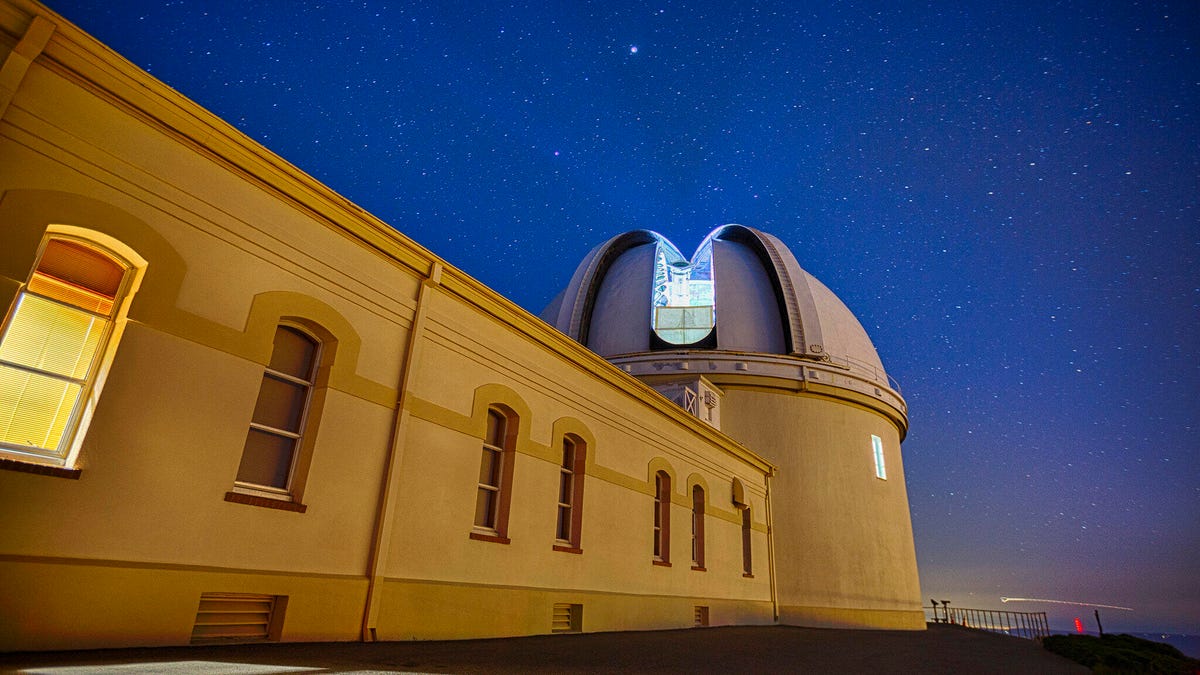133-year-old Lick Observatory survives brush with California wildfire
The historic facility east of San Jose is hallowed ground to astronomers.

The main building of the Lick Observatory with the 36-inch Great Refractor dome open.
The situation was looking pretty grim for the world's oldest permanent mountaintop observatory Wednesday night. The massive SCU Lightning Complex fires burning east of San Jose blazed a destructive path to the top of Mount Hamilton, home of the University of California's Lick Observatory since 1888.
Webcam images showed the iconic domes of the observatory, which house the Automated Planet Finder, the historic Great Lick Refractor and a handful of other telescopes, backlit by encroaching flames overnight.
— Freddy 🏎️💨🏍️💨🦁 (@Freddy12881) August 20, 2020
With evacuation orders in place and much of the observatory staff already working elsewhere due to the COVID-19 pandemic, the fire posed more of a threat to the iconic landmark than to human life as it entered the property Wednesday. Firefighters from around California set up a command post at the facility, and by Thursday morning, webcams on the property showed all domes appeared to have escaped the flames.
The Automatic Planet Finder sits unscathed at the Lick Observatory atop Mt. Hamiltion after a wildfire moved across the property.
An incident update released by CalFire Thursday morning reported that no structures had yet been damaged or destroyed, but that the fire grew to more than 137,000 acres overnight and is only 5% contained.
A later statement from UC Observatories Director Claire Max said that one unused residence on the property did burn completely and that several others sustained some damage, either from the flames or from water and smoke. Max credits firefighters with working through the night to save the heart of the facility.
"Thanks to their tremendous efforts, the telescope domes did not burn," she said, adding that there may still be some danger of the fire circling back over unburned areas at the observatory.
California Gov. Gavin Newsom has declared an emergency and asked for assistance from across the country as dozens of fires burn in the state.

